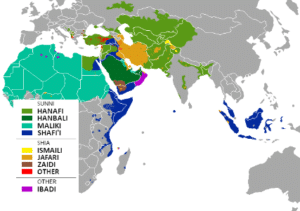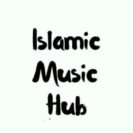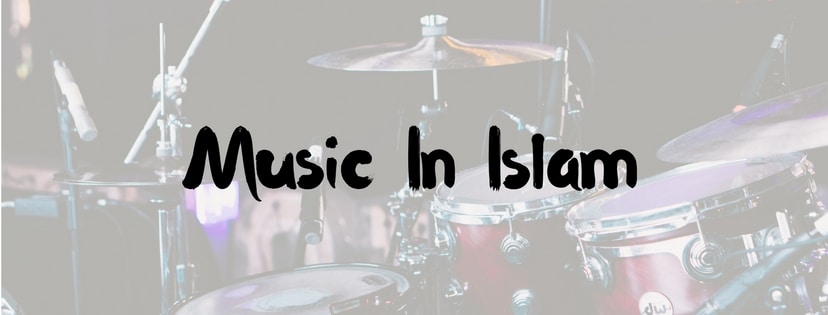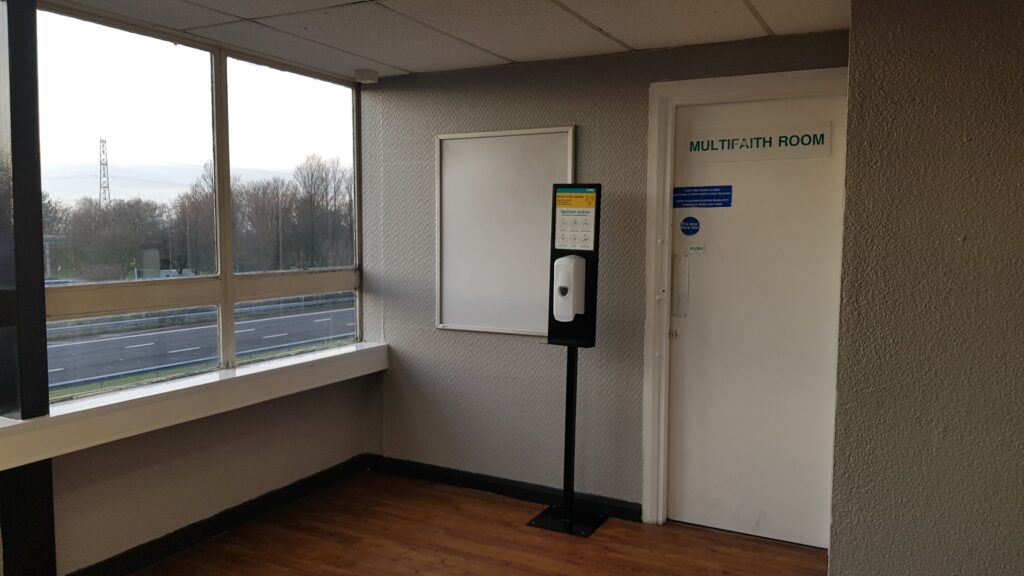Is Music Haram?
Are instruments allowed in Islam?
Please give me Quranic quotes on music…
These are common questions asked by those growing up in today’s world. Whether you live in the UK, US, Pakistan, Indonesia or anywhere in-between, music plays a huge role in society.
Many Muslims hold a strong view that music is Haram in Islam, but there are those who believe it is permissible. What do the books say?
This article will explore both sides of the argument, providing both evidence for and against music in Islam, with reference to Quran, hadith and key scholars.
What Type Of Music?
Before jumping in, it might be worth defining the type of music we are going to explore.
Let’s break music into two categories for the purpose of this review:
- Mainstream pop songs
- Musical instruments
Define Mainstream Music
Mainstream music refers to the popular hit songs commonly played on radio, TV and YouTube.
Examples of artists: Jason Derulo, Lady Gaga, Beyonce and Snoop Dog.
It can be argued that most mainstream songs do not promote a positive life-style, and rather encourage unislamic activities such as drugs, clubbing, sex and violence.
On the other hand, some mainstream music may contain positive or meaningful lyrics, such as ‘happy’ by Pharrell Williams or ‘Feed The World’ by Micheal Jackson.
We will explore whether any of these are permissible in Islam.
…and Musical Instruments?
The popularity of individual musical instruments vary around the world.
The piano is one of the most popular instruments in the UK while the Guitar ranks high in Spain. In India we find unique instruments such as the Tabla and Sitar while the Daf has huge significance in the Arab world.
Musical instruments can be split into different families, they are as follows:
Stringed: Violin, Guitar, Electric Guitar, Harp
Woodwind: Flute, Recorder, Harmonica
Percussion: Drums, Daf, Dhol
Brass: Saxophone, Trumpet, Horn
Keyboard: Piano (also considered stringed and percussion)
Let’s take a look at the Quranic view on the two types of music listed above.
Music In The Quran
The Quran ranks number one – if any Islamic resource states something in contrast to the Quran it must be rejected.
There is actually no verse in the Quran where music is directly forbidden, nor is there a verse where it is allowed.
We do however have one verse closely related to the topic.
The Verse On Idle Tales
“But there are among men those who purchase idle tales without knowledge (or meaning) to mislead (men) from the Path of Allah and throw ridicule (on the Path): for such there will be a humiliating Penalty” (Quran 31:6)
At the time of the Prophet, it was common practice to purchase singing slave girls – who would sing about past wars.
People would purchase them with the evil intention of distracting others from Allah, sometimes playing loudly while the Muslims prayed.
The prophet elaborated on the Quranic verse by saying that the purchase of idle tales refers to the purchase of these singing girls.
Elaboration on the verse
Al-Tirmizi reported from Abi Umamah from the Prophet (Sallallahu Alaihi wa Sallam) who said: “Do not sell slave songstresses and do not buy them as there is no good in any trade with them. Their price is Haram. This verse addresses them: {And of mankind is he who purchases idle talks (i.e. music, singing, etc.) to mislead (men) from the Path…} ” .
Ibn Masood and Ibn Abbaas also commented the verse, stating that it refers to music.
Does this verse mean music is haram?
This does not indicate that music itself is Haram, but clearly states that using song to mislead and distract people from Islam is wrong.
Therefore if music (mainstream or instrumental) distracts us from Allah, then we should not continue to listen.
Songs Contradicting Quran
Those songs which promote something against the Quran are clearly forbidden. Let’s take a look at some examples.
Songs Promoting Alcohol
Any song which promotes Alcohol should be avoided, as the consumption of Alcohol is considered a major sin in Islam:
“O ye who believe ! Strong drinks and games of chance and idols and divining of arrows are only an infamy of Satan’s handiwork. Leave it aside in order that ye may succeed“ (Quran 5:90)
Songs That Encourage Looking At Women
There are a huge number of songs that encourage looking at the opposite sex with desire. The Quran asks men to do the opposite, and lower their gaze when passing a women.
“Tell the believing men to lower their gaze and to be mindful of their chastity” (Quran 24:30)
Songs With Swear Words
There is a clear verse in the Quran against swearing, but modern day music has plenty of bad language.
“O you who have believed, let not a people ridicule [another] people; perhaps they may be better than them; nor let women ridicule [other] women; perhaps they may be better than them. And do not insult one another and do not call each other by [offensive] nicknames. Wretched is the name of disobedience after [one’s] faith. And whoever does not repent – then it is those who are the wrongdoers” (Quran 49:11)
And Many More
Other common forbidden themes in modern day music include:
- Promotion of drugs – Quran 5:90
- Putting money first – Quran 18:46 & 3:14
- Encouraging Homosexuality – Quran 7:81
Conclusions From The Quran
We should avoid any song that encourages wrong or distracts us from remembering Allah.
This would cover the majority of mainstream music that people listen to these days.
But what about good music?
Let’s now look at positive music, with a focus on music that actively promotes Islam.
Islamic Music (Nasheeds)
There are a growing number of artists who produce Islamic music – encouraging people to obey Allah, read Quran and do lots of dhikr.
Examples of Islamic music artists include Maher Zain, Safe Adam, Zain Bhikha and Harris J.
The intention behind their music is certainly not to take people away from Allah, so the Quranic verses above cannot apply. Their songs are free from promoting forbidden things such as alcohol, drugs, clubbing and offensive talk.
But are musical instruments allowed?
Scholars are divided regarding the ruling on using musical instruments to accompany these songs.
Let’s take a look at reasons for and against musical instruments in Islamic songs.
Arguments Against Instruments
There is a key hadith that suggests musical instruments are forbidden
A Direct Hadith
Narrated Abu ‘Amir or Abu Malik Al-Ash’ari: that he heard the Prophet saying, “From among my followers there will be some people who will consider illegal sexual intercourse, the wearing of silk, the drinking of alcoholic drinks and the use of musical instruments, as lawful… (Bukhari, Volume 7, Book 69, Number 494v)
Musical instruments have been placed alongside huge sins in this hadith, suggesting their use is also a sin.
Those who believe musical instruments are not allowed in Islam use this hadith for key support, however those who disagree argue that the hadith applies within the context of using musical instruments as part of worship – which is what they used to do in those days.
The Four Madhabs
Islam spread through chains of learning. For example:
- The prophet taught person 1
- Person 1 taught person 2
- Person 2 moved abroad and taught person 3
- Person 3 taught person 4 and so on…
From this came four key schools of thought: Hanafi, Maliki, Shaafi’i & Hanbali.
These four chains of learning are named after prominent people in those chains. For example, Imam Abu Hanifa was a key scholar in the Hanafi chain, and therefore it was named after him.
Take a look at the diagram below, showing how Islam spread around the world:

The Hanafi teachings cover Asia (including Pakistan, Bangladesh, Kazakhstan and Turkey)
The Maliki teachings cover North Africa (including Libya and Morocco)
The Shaafi’i teachings reach East Africa and the Far East (including Sudan, Somalia and Indonesia)
The Hanbali teachings remain around the Saudi Area.
As a result, we find people vary slightly in the way they practice Islam around the world.
What Did The Four Imams Say About Music?
The four key Imams differ on their opinion of musical instruments in Islam, but on the whole believed that it was haram.
- Imam Abu Hanifa took a strict view on the topic. He believed that music of any form is not allowed, including the drum and even tapping a stick.
- Imam Malik took a similar approach however his school believe it is ok to sing innocent songs, the type people sing to pass time while travelling, during hard labour or on joyful occasions such as Eid and weddings. He allows singing to be accompanied by the beating of a daf.
- Imam Shaafi’i believed singing was disliked, and should not be done on a regular basis.
- Imam Ahmad Bin Hanbal Claimed that musical instruments were haram, apart from playing the daf on happy occasions.
On the whole, the four key Imams discourage music in Islam.
We must remember that the hadiths were still being compiled while they were alive. Therefore new hadiths may have come into light, altering the earlier decisions.
Take a look at what Zakir Naik says on this topic:
For this reason, we find other key scholars disagree with the views of the four Imams, despite being in the same chains.
Arguments For Instruments
Imam Al-Ghazali was a huge scholar in Islam, so big that some historians referred to him as the most influential Muslim after the prophet Muhammed (pbuh) (learn more).
Ghazali reported several hadiths from Bhukari that supported the argument that instruments are allowed in Islam.
Hadiths Allowing Music
There are hadiths where the prophet (PBUH) allowed the playing of instruments in his presence.
Eid Celebrations
Narated By ‘Aisha : That once Abu Bakr came to her on the day of ‘Id-ul-Fitr or ‘Id ul Adha while the Prophet was with her and there were two girl singers with her, singing songs of the Ansar about the day of Buath. Abu Bakr said twice. “Musical instrument of Satan!” But the Prophet said, “Leave them Abu Bakr, for every nation has an ‘Id (i.e. festival) and this day is our ‘Id.” (Bukhari Volume 5, Book 58, Number 268)
A similar narration in Muslim suggests it was a wind instrument, however others argue that their voice is being compared to a flute:
‘A’isha reported: Abu Bakr came to see me and I had two girls with me from among the girls of the Ansar and they were singing what the Ansar recited to one another at the Battle of Bu’ath. They were not, however, singing girls. Upon this Abu Bakr said: What I (the playing of) this wind instrument of Satan in the house of the Messenger of Allah (may peace be upon him) and this too on ‘Id day? Upon this the Messenger of Allah (may peace be upon him) said: Abu Bakr, every people have a festival and it is our festival (so let them play on).(Muslim, Book 004, Number 1938)
The above hadiths suggest musical instruments are allowed on joyful occasions, such as Eid. This might have been the reason why scholars of the Maliki & Hanbali school allowed instruments on festivals.
Music After Marriage
It was narrated that al-Rubayyi’ bint Mu’awwidh ibn ‘Afra’ said: “After the consummation of my marriage, the Prophet (peace and blessings of Allaah be upon him) came and sat on my bed as far from me as you are sitting now, and our little girls started beating the daff and reciting verses mourning my father, who had been killed in the battle of Badr. One of them said, ‘Among us is a Prophet who knows what will happen tomorrow.’ On that the Prophet said, ‘Omit this (saying) and keep on saying the verses which you had been saying before.’” (Narrated by al-Bukhaari, 4852).
Here we find another example of the prophet allowing music and singing, in this case the duff was the instrument.
Music During A Parade
It was the day of ‘Id, and the Black people were playing with shields and spears; so either I requested the Prophet (p.b.u.h) or he asked me whether I would like to see the display. I replied in the affirmative. Then the Prophet (p.b.u.h) made me stand behind him and my cheek was touching his cheek and he was saying, “Carry on! O Bani Arfida,” till I got tired. The Prophet (p.b.u.h) asked me, “Are you satisfied (Is that sufficient for you)?” I replied in the affirmative and he told me to leave. (Buhkari Volume 2, Book 15, Number 70)
Commentators of hadith suggest that the people were also dancing and playing instruments. Again we find the prophet allowed this to continue, and even let his wife Aisha watch.
Here is a summary of the hadith mentioned above, by Dr Tahir ul-Qadri:
https://youtu.be/2pFDVl3rV7I
Prominent Scholars Who Allowed Music
Imam Al-Ghazali
“Whoever says that all music is prohibited, let him also claim that the songs of birds are prohibited.” (Imam Al-Ghazali)
We already discussed the popularity of Imam Al-Ghazali, so it’s worth exploring his ideas further.
Imam Al-Ghazali took the Shaafi’i jurisprudence, however his views on music are somewhat different.
This article goes into detail about Imam Al-Ghazali’s view on music. He did not approve of music associated with haram activities, such as alcohol and lustful entertainment. He did however permit singing of religious, heroic and modest songs.
Not only did Imam al-Ghazali permit music, but he also felt dancing was allowed:
“dancing is a cause of joy and liveliness. And the moving of every allowable joy is permissible; if it were unlawful Ā‘ishah
would not have looked on at the Abyssinians with the Messenger of God while they were yazfinūn” (Imam al-Ghazali)
Other Scholars
Other scholars who allowed music include: Abu Bakr ibn al-Arabi, Ibn al-Qaisarani, Ibn Sina, Rumi, Ibn Rushd, and Ibn Hazm
The Zubur / Psalms
The Zubur was the holy book given to the prophet David (Dawud in Arabic). Many scholars equate the Zubur with the biblical Psalms, which means ‘Instrumental Music’ in Greek (learn more). Some people suggest that music cannot be forbidden as a prophet of Allah was given music.
“We have sent thee inspiration, as We sent it to Noah and the Messengers after him: we sent inspiration to Abraham, Isma’il, Isaac, Jacob and the Tribes, to Jesus, Job, Jonah, Aaron, and solomon, and to David We gave the Psalms“ (Quran 4:163)
In the following hadith, the prophet speaks positively about the flute:
“the Prophet said to him’ ‘O Abu Musa! You have been given one of the musical wind-instruments of the family of David” (Bukhari Volume 6, Book 61, Number 568)
Although others argue that the phrasing is wrong. The prophet was not speaking about the instrument itself but saying that his voice was like a flute (learn more).
Final Thoughts
From the evidence above, it is clear that unislamic songs and the majority of mainstream songs should be avoided.
However a number of very different conclusions can be made with regards to using instruments:
Conclusion 1: Instruments Are Haram
Some people view the above evidence and decide it’s best to play it safe due to the Hadith against instruments and views of the four imams. They conclude instruments are Haram.
Conclusion 2: Instruments Are Halal
Some people view the evidence and observe that the prophet allowed music on occasions, suggesting it cannot be haram. They conclude all instruments are Halal, and that the daf was simply the most common instrument at the time, in their area.
Conclusion 3: Only The Daf Is Halal
Others look at the above and note that the daff (drum) was usually the instrument used, they assume that this must mean the daf is allowed, but other instruments Haram.
A Debated Subject
The issue of musical instruments is a debated issue.
Issues like this have been debated by high scholars, and therefore we as regular people have no right to say whether it is halal or haram.
We can do research and follow the best views according to our findings. We can certainly put opinions across, but should respect all views.
If we don’t the danger is that we end up dividing the religion, and there is a clear verse in the Quran against that:
“As for those who divide their religion and break up into sects, thou hast no part in them in the least: their affair is with Allah: He will in the end tell them the truth of all that they did” (Quran 6:159)
Hub Reviews
At Islamic Music Hub we review various forms of music promoting Islam. We cover voice only, instrumental and daf only songs.
No matter what your view, we have something for you. Have a read:
No Music
Daf Only
Allah Made Everything – Zain Bhikha
Mountains Of Makkah – Zain Bhikha





